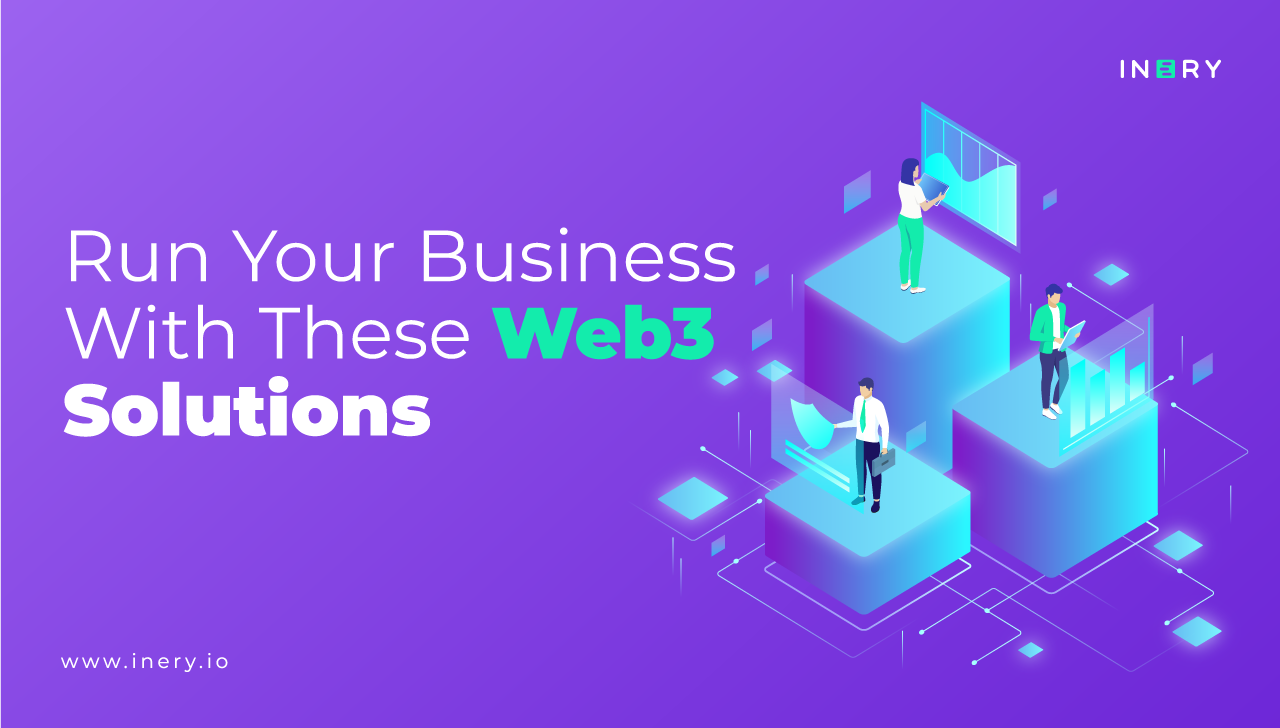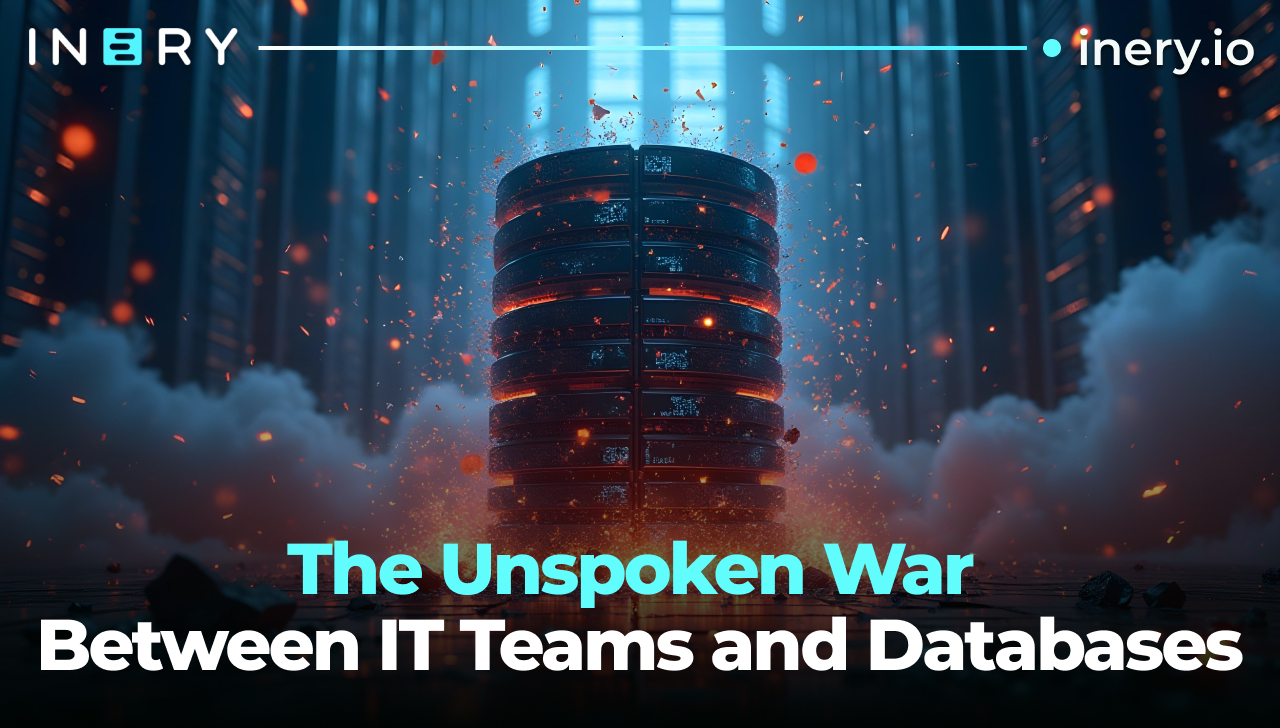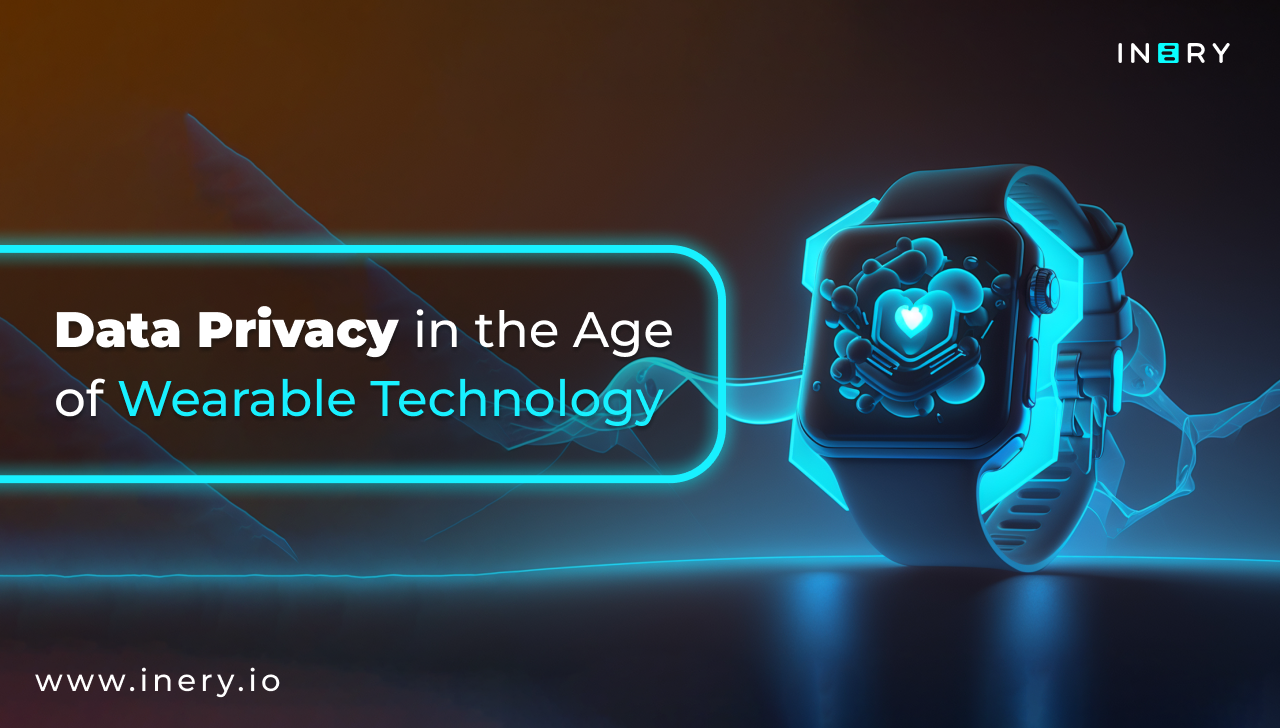Run Your Business With Web3 Solutions
The Web2 way of doing business has been an amazing upgrade from the days of Web1. Web2 opened up the doors for companies to interact with customers in a more personalized way through social media and other forms of user-generated content. It also resulted in an era of data silos, offering the tools to understand the consumer better than ever before.
But as Web2 matures, we see more and more cracks in the system. Centralized, non-smart solutions can’t measure up to the needs of an increasingly digital and data-reliant world. When the borders between data and person become more blurred than ever, businesses need ways to cater to these new, complex identities.
To that end, more and more companies are looking into Web3 solutions like blockchains, AI, or the metaverse. Here are the ways your business can implement them, as well as the benefits entailed.
Artificial Intelligence
The market for artificial intelligence (AI) is booming, especially after breakthroughs in machine learning like ChatGPT. Businesses are jumping on this bandwagon, expecting to cut costs and make more informed decisions using AI.
One of the biggest strengths of current-day AI lies in analyzing massive pools of data. It can sift through huge databases, discover patterns, and generate actionable insight—even sound predictions—at incredible speeds. It’s also remarkably good at monotonous labor-intensive operations like data entry and other such bookkeeping efforts.
Companies that deal with big data are particularly interested in AI solutions, as these datasets are too enormous for traditional data analytics. But other enterprises also stand to benefit from AI-powered database management. Through this technology, your business can automate repetitive, time-consuming tasks, rely on fact-based predictions, and tap into the true potential of your databases.
Metaverse
The metaverse has the potential to connect businesses, employees, and customers in creative yet never-before-seen ways. In an age of remote work and eCommerce, the metaverse closes the virtual gap.
There are plenty of intriguing ideas for businesses to implement the metaverse. For example, the metaverse can help keep remote workers in touch through virtual conference rooms, training seminars, or hangouts. Alternatively, you can construct an entire digital economy for your customers. Virtual reality clothing stores, a monetized recreational area filled with games, even virtual ads, or building space—the metaverse is an extremely flexible solution.
Overall, the metaverse can be a powerful tool for creating a unique customer experience and building communities. If your company needs fresh ways to improve communication and collaboration, the metaverse may be worth considering.
Blockchain
The blockchain is the centerpiece of the Web3 vision. This distributed ledger is designed to decentralize data and disperse power equally among stakeholders. As such, it neatly fits into the ideology behind Web3.
But there’s more to it than ideology; the blockchain provides a slew of benefits to businesses, ranging from security to customer satisfaction. Perhaps more importantly, it addresses some of the greatest Web2 weak points.
From a security standpoint, the blockchain’s decentralization eliminates the single-point-of-failure problem that emerged from the centralized, siloed Web2 data model. Blockchain data is immutable and distributed among nodes, and the ledger manages itself via consensus mechanisms. This results in three big benefits:
- A hacker would have to “take over” more than half of a blockchain’s nodes to affect change. This is highly impractical, even downright impossible depending on how large the blockchain is.
- In case one or more nodes malfunction, the network can keep working without major fluctuations in performance.
- The blockchain doesn’t require third-party entities to ensure compliance and safety (e.g., banks or auditing bodies). Therefore, system complexity is reduced, which in turn lowers the number of potential weak points
Another benefit of the blockchain’s decentralization is that it offers consumers far more control over their data. Users can curate their encrypted digital identities and choose which data they submit to businesses. With the blockchain, your business can build trust from customers, knowing their personal info is safe from hackers and intrusive data hoarders.
Smart Contracts
Smart contracts are among the more useful blockchain applications for bureaucratic purposes. These self-executing contract protocols don’t require an intermediary (lawyers, brokers, etc.) to enforce transactions. Therefore, they can greatly reduce costs and time spent on processes like invoicing, agreement termination, reconciliation, and the like.
The smart contract also allows blockchain members to create highly customizable parameters for compliance. For example, an eCommerce business can encode a contract with an automatic discount if a delivery fails to arrive by the agreed-upon deadline. Alternatively, companies in the music industry can create a smart contract outlining royalty payments to artists, automatically rewarding them with tokens depending on how many times their songs are streamed or downloaded.
NFTs
Non-fungible tokens (NFTs) open up a slew of business opportunities. especially for those invested in artistic properties, collectibles, or improving customer loyalty. They’re also a marvelous tool for increasing brand awareness and creating interest in a product or service.
As far as implementation ideas go, an enterprise can leverage NFTs in a ton of different ways. For example, an NFT allows you to digitize a work of art and auction it directly to your decentralized community, removing fees from middlemen like galleries or auction houses. Clothing companies can also generate hype around a new product through an NFT of said product and selling it. There’s even the option of staking NFTs on platforms like PancakeSwap and generating passive revenue through interest.
Inery: the Backbone of Your Business’ Transition to Web3
For a business to adopt Web3 tech in the best way, it needs a solid data infrastructure and a way to manage it. Inery’s database management solution lets your enterprise tap into the potential of decentralized data.
The Inery proprietary layer-1 blockchain offers superior security through encryption and the Self-Delegated Proof of Stake consensus mechanism. Through its network of decentralized nodes, your company allows customers to handle their data on their terms.
With Inery’s services, creating NFTs or value contracts is simplified and highly customizable. Meanwhile, IneryDBMS (database management system) has an intuitive GUI that allows even lay users to CRUD data effectively.
IneryDBAI, a powerful AI solution, calculates the amount of memory necessary for your projects to run optimally. It does so by analyzing previous projects in IneryDB, using that data to predict how much memory your project will require.

Inery•
2 years ago
IneryDB and Twitter: Use Case & Technical Aspect
Here, we will explore the use case and technical aspects of using IneryDB with Twitter and how this integration could revolutionize the way we view and interact with social media. ...READ MORE
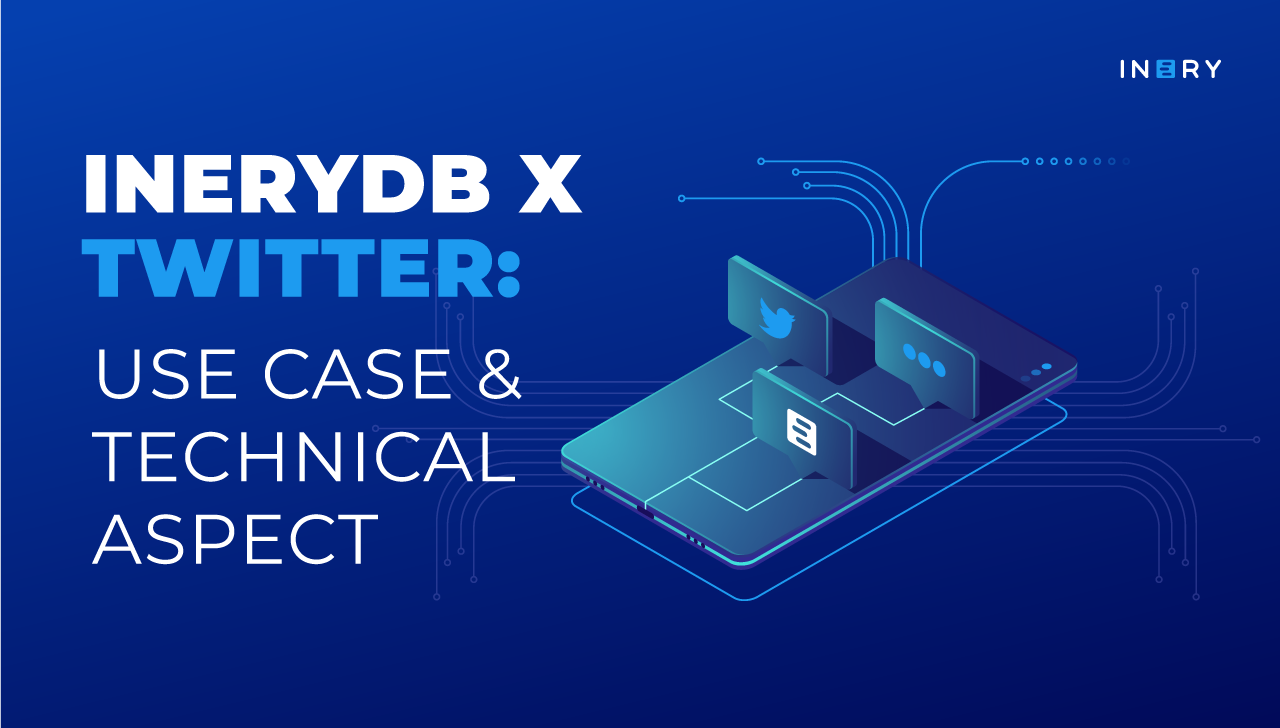
Share

Inery•
3 years ago
About Inery – Deep Dive Into Masternodes
Take a deep dive into what DNA the Inery blockchain is made of, and masternodes of Inery ...READ MORE
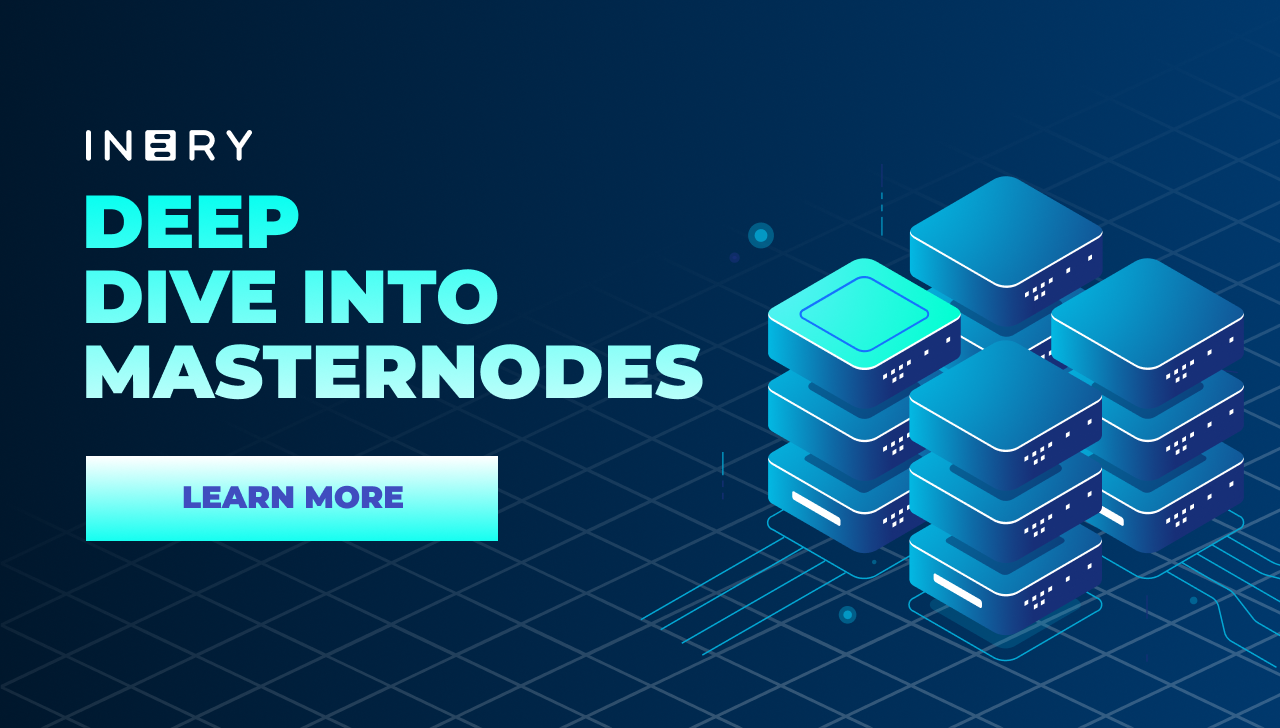
Share

Inery•
1 year ago
Digital Art and NFTs: The Role of Inery in Securing Creative Ownership
Explore the evolution of art ownership from traditional to digital realms, the rise of NFTs, and the unique challenges they present. Discover how Inery's blockchain technology secures creative ownership and enhances the digital art ecosystem. ...READ MORE
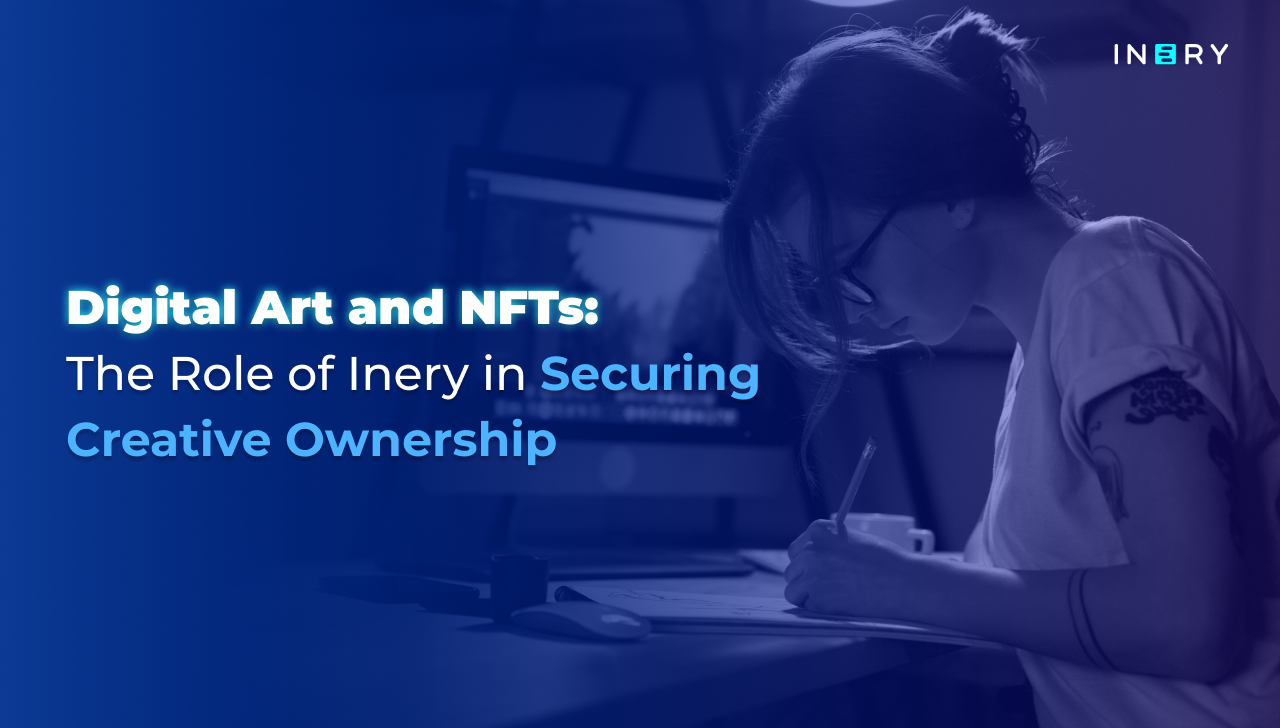
Share

Inery•
10 months ago
Inery Roadmap 2025: What We’ve Building Together
Discover what’s next for Inery in 2025. From smarter data tools to seamless integrations, here’s how we’re building a better way to manage data, together with the community. ...READ MORE

Share
Most popular today

